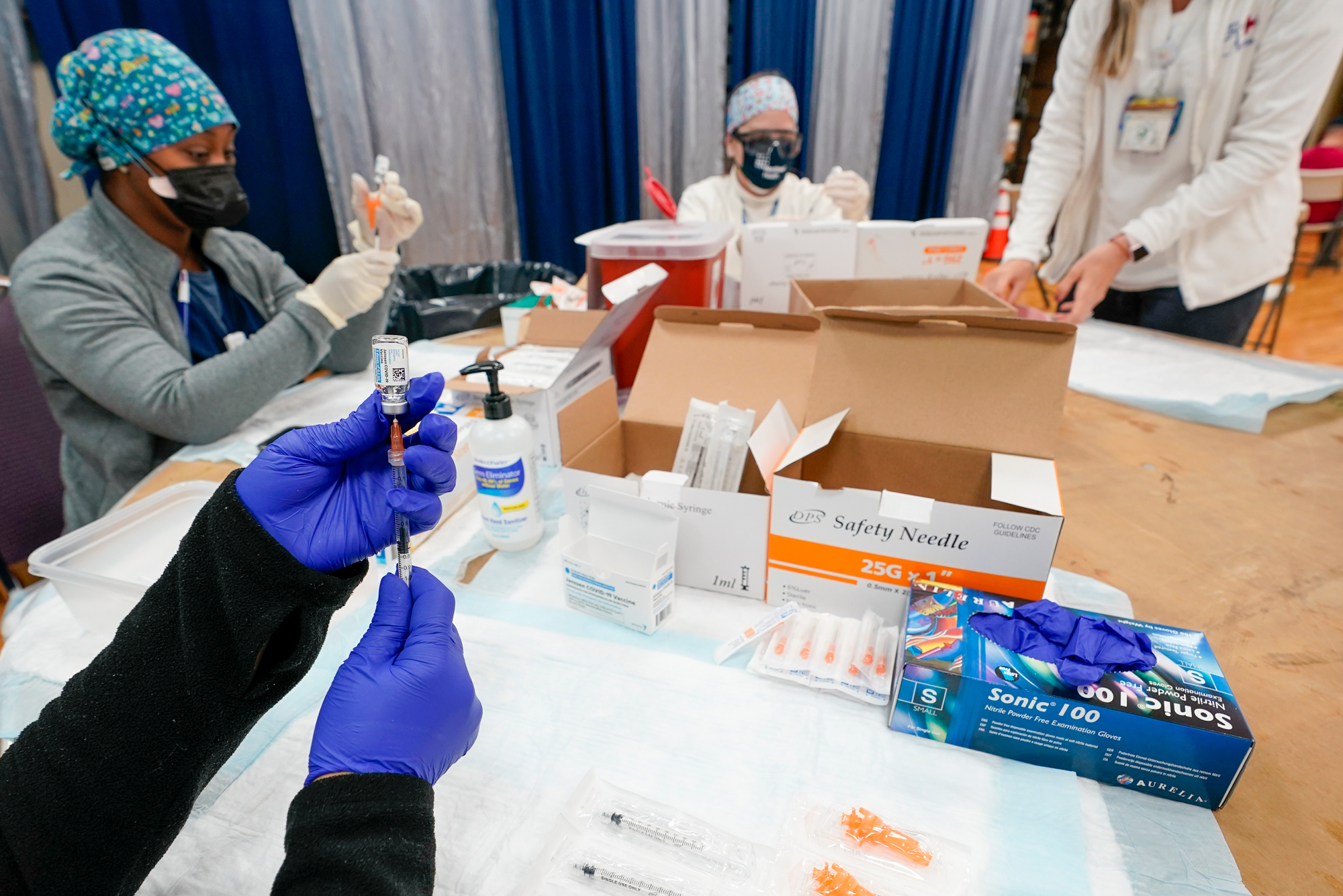I Got the Johnson & Johnson Vaccine. The Pause Makes Me Believe in It More

Photo by Mary Altaffer/AP
I Got the Johnson & Johnson Vaccine. The Pause Makes Me Believe in It More
“The worst thing that could happen now is for the recommendation by the FDA and CDC to pause the vaccine’s administration to spur a new wave of vaccine hesitancy”
Editor’s Note: On Friday, April 23, the Food and Drug Administration announced that it was ending its pause of the J&J vaccine but will add a warning to the vaccine’s label that it carries a potential risk for blood clots in rare instances.
I am a woman between the ages of 18 and 48 who got the Johnson & Johnson vaccine about a week ago. That means I’m in the category of folks who must spend the next week looking out for symptoms of a potentially life-threatening blood clotting disorder, the risk of which led to federal health officials’ headline-grabbing move recommending the sudden halt on the vaccine Tuesday.
And if I had it all to do over again, I’d get the shot without hesitation. I hope, if and when the drug again gets the all-clear, others get it too.
As a Black woman in America, I understand risk. For the past year in particular, I’ve been intimately acquainted with the severe anxiety that comes from the increased risk that an interaction with police could be a fatal one, from the abusive threats that come with reporting on racial issues, or from the outsized danger the coronavirus pandemic poses to my health and mental well-being because of my race and gender.
It is that last peril that made getting a COVID-19 vaccination a top priority. I wanted not only to protect myself, but also to encourage others—particularly Black women—to do the same.
So I navigated my way through the vaccine online sign-up system in Washington, D.C., where I live. As in many states, including Massachusetts, it was a mess. And I waited. And waited.
Then, earlier this month, I got the email I had been waiting for: “You are now eligible to book your appointment.”
I clicked the provided link and began scrolling down the list until I found my preferred option: one dose of Johnson & Johnson.
Friends and family members had experienced unpleasant side effects after the second dose of their Pfizer or Moderna vaccines, so I wanted to take the one-and-done route. My busy work schedule, not to mention my upcoming wedding in May, meant finding time for one injection was preferable to squeezing two into my calendar. And most importantly, I wanted the vaccine that would reach its maximum effectiveness as soon as possible. With Johnson & Johnson, that meant two to four weeks after the needle hit my arm. With the others, it would take a few weeks after the second dose, meaning a total of five to eight weeks.
I also wanted to help dispel the myth that the Johnson & Johnson vaccine is inferior. Back in March, I was appalled when Mike Duggan, the mayor of my hometown of Detroit, declined an initial shipment of the one-dose vaccine when demand was still far exceeding supply, saying he would rely on the city’s Moderna and Pfizer stock so residents would get “the best vaccine.” That kind of ill-informed messaging foments distrust, and I was glad he reversed course later.
The worst thing that could happen now is for the recommendation by the US Food and Drug Administration and the Centers for Disease Control and Prevention to pause the vaccine’s administration to spur a new wave of vaccine hesitancy—particularly in folks who work in restaurants or in gig economies, who juggle multiple jobs or have childcare challenges, all of which make the one-shot vaccine a more convenient option.
Of course, news that six women developed blood clots in the brain after taking the vaccine, and one died, is concerning. But that’s still a less than one-in-a-million possibility: seven million Americans received the one-shot vaccine. Compared to its 100 percent effectiveness against COVID-19 hospitalizations and death, and given the far higher blood clot risk from taking oral contraceptives or smoking cigarettes, I know I made the right decision.
I want others to view this pause not as reason to doubt the drug, but a reason to believe in it. I understand how people, including many Black Americans who have well-founded suspicions about whether the healthcare they receive is inadequate or laced with inherent bias, would find this news unnerving. But I think about my mom, who was wary of COVID vaccines until a source she trusted—Dr. Anthony Fauci—got it himself. She and my dad are now fully vaccinated.
“The fact that a pause was done, I think, is just a testimony to how seriously we take safety, and why we have an FDA and CDC that looks at this very carefully,” Fauci, the nation’s top health infectious disease expert, said Tuesday of the Johnson & Johnson recommendation. “Hopefully we will resolve it pretty soon, within days to weeks.”
And hopefully then folks like me, for whom this vaccine is the best option for doing our part to tamp down the pandemic and save lives, won’t be afraid to get that one shot in the arm.
This piece was written for BostonGlobe.com and is republished here with permission from the Boston Globe. Kimberly Atkins, a Globe senior opinion writer, is a dual-degree alum of Boston University—she earned a JD from BU’s School of Law and an MS from the College of Communication in 1998. Kimberly Atkins can be reached at kimberly.atkins@globe.com. Follow her on Twitter @KimberlyEAtkins.
Comments & Discussion
Boston University moderates comments to facilitate an informed, substantive, civil conversation. Abusive, profane, self-promotional, misleading, incoherent or off-topic comments will be rejected. Moderators are staffed during regular business hours (EST) and can only accept comments written in English. Statistics or facts must include a citation or a link to the citation.